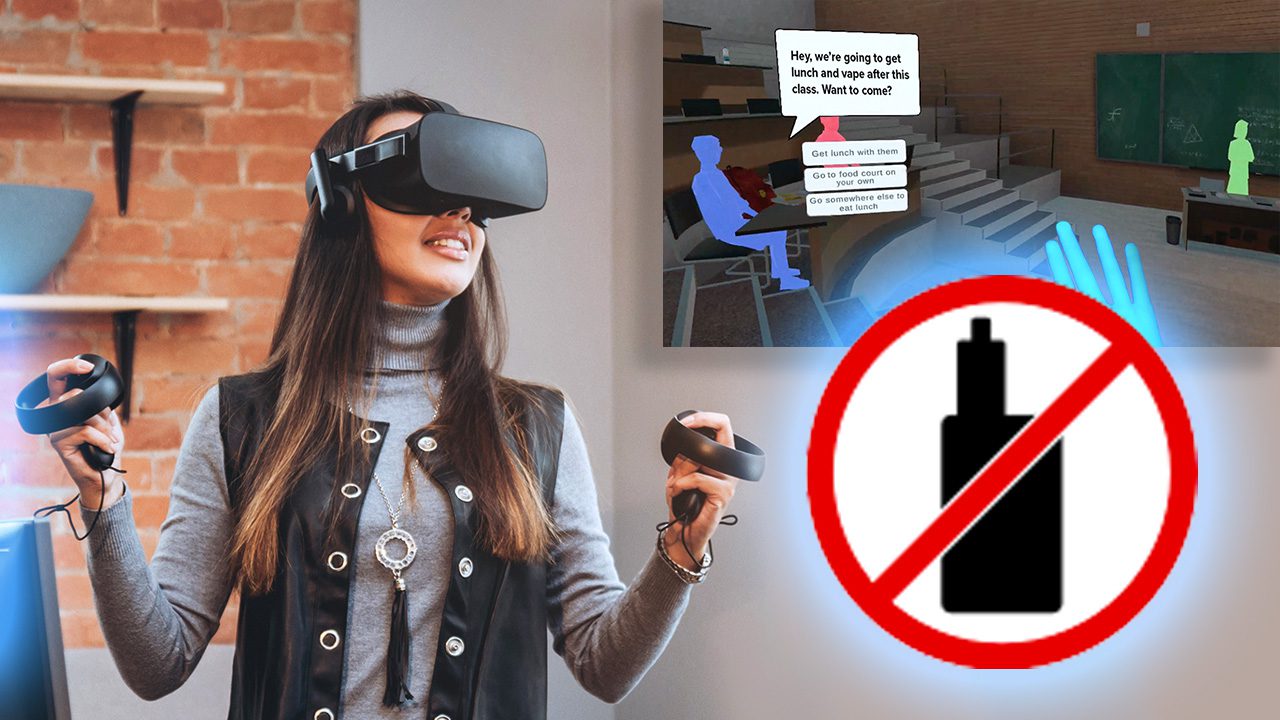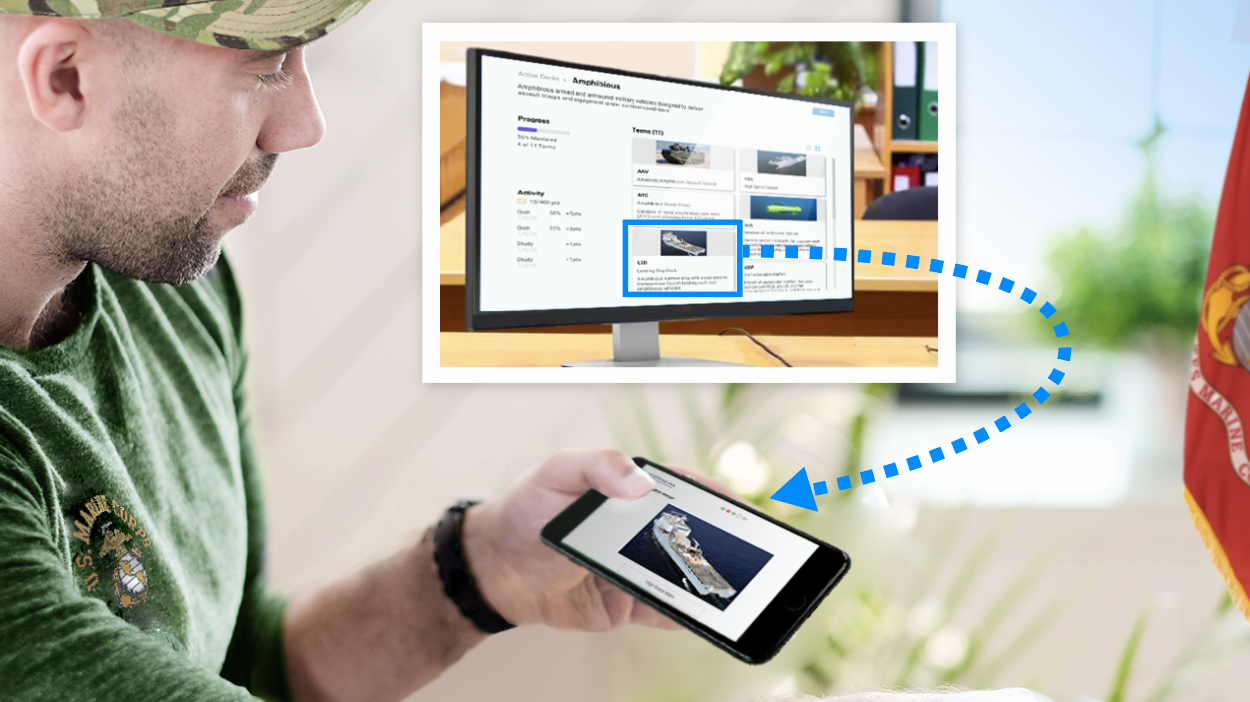Charles River Analytics was awarded a Small Business Innovation Research (SBIR) grant from the National Institutes of Health (NIH) National Institute on Drug Abuse (NIDA) to create a virtual reality (VR) application to enhance therapy for quitting electronic cigarettes (vaping).
Studies have linked vaping to adverse effects such as oral health problems, lung damage, and cardiac issues. Cognitive behavioral therapy (CBT) techniques can help build skills for coping with vaping triggers and resisting cravings, but tools to facilitate skill practice and rehearsal outside of CBT sessions are lacking. Existing tools, like texting apps, don’t provide immersive opportunities for people trying to quit vaping to practice alternative ways of responding when confronted with common vaping triggers.
The Charles River Analytics team is leveraging their expertise in technology-based therapeutic tools and VR apps for smoking cessation to address these challenges. The NO VAPE app—short for Novel, On-demand VR for Accessible, Practical, and Engaging therapy—embeds standard CBT into VR for people combatting addiction to vaped nicotine. This means that people will be able to virtually experience and practice CBT techniques in immersive, realistic scenarios, making therapy more engaging. The app will enable individuals to practice between clinical sessions, potentially enhancing the beneficial effects of therapy and increasing vaping cessation rates.
“VR is immersive, engaging, and realistic,” said Dr. Bethany Bracken, Principal Scientist and Director of Physiological Systems at Charles River Analytics, and Principal Investigator on the NO VAPE effort. She adds, “It’s fun and easy to use, which may motivate people and help with their treatment regimen.”
Bracken’s team is developing the app in close collaboration with partners Corrine Cather, PhD, and Eden Evins, MD, MPH, at Massachusetts General Hospital’s Center for Addiction Medicine. This partnership ensures that the NO VAPE app incorporates a CBT curriculum designed to be delivered by lay counselors without formal mental health training, which capitalizes on the potential to increase treatment availability. The developers are building the app in Unity to ensure that it is available to people on a variety of popular VR devices.
The grant is a fast-track award, which, upon meeting feasibility goals, facilitates rapid transition to Phase II where a clinical trial will test whether the app results in increased practice between clinical sessions and whether it enhances the odds of successfully quitting vaping. To accelerate the productization of the technology, the Charles River team participated in the Winter 2024 I‑Corps™ program sponsored by NIH. I-Corps provides resources and entrepreneurial training to help R&D companies conduct the rigorous market discovery necessary to effectively transition their research into commercial products. “The program’s coaching and access to industry experts have been invaluable. We’re grateful to have had this opportunity,” said Rich Wronski, Division Vice President at Charles River Analytics.
NO VAPE could help remove barriers to accessing mental health treatment by delivering CBT in an immersive, portable format that could help motivate people to continue practicing the skills they need to quit vaping. This project extends Charles River’s TheraVerse™ product, the company’s CBT platform developed under previous work consisting of a portfolio of metaverse tools for treatment of substance dependence and mental health issues.
Contact us to learn more about NO VAPE, TheraVerse, and our other health and medical capabilities.
This project has been funded in whole or in part with Federal funds from the National Institute on Drug Abuse of the National Institutes of Health under Award Number 1R44DA059018-01. The content is solely the responsibility of the authors and does not necessarily represent the official views of the National Institutes of Health.





